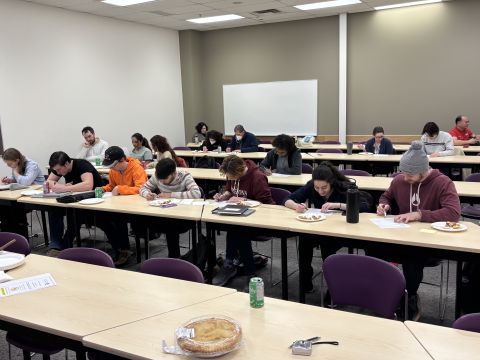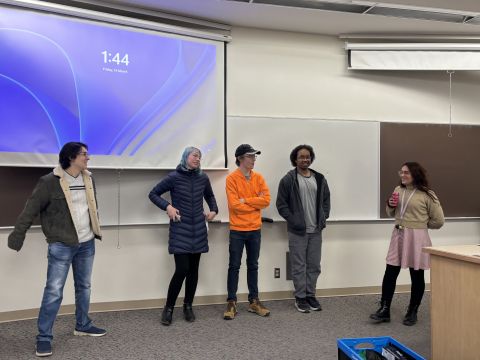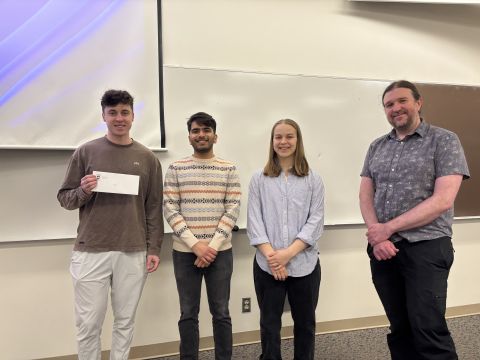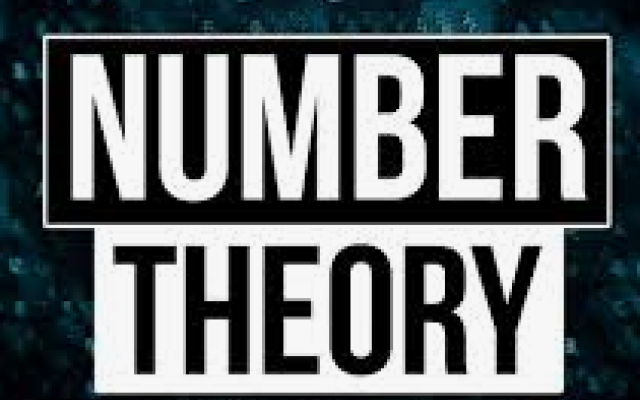
PROBLEM. ANALYSIS. SOLUTION.
Our computer science, mathematics and statistics faculty and instructors are top of the line, with credentials to rival other universities in and outside of Canada.
We offer Bachelor of Science undergraduate degrees in Applied Statistics, Computer Science and Mathematics. Both Master's and Doctoral levels of study are also available. Department faculty are currently working with students studying at each of these levels, many of whom are graduate students from around the world. Learn more about our majors and minors.
Undergraduate students may have opportunities to do research projects with our faculty, using modern facilities, for hands-on experience. Several department faculty have independent research programmes supported by agencies such as NSERC and IBM Canada, and at times, there may be a collaboration with other disciplines.
During this unique time in the world, the University of Lethbridge may be a bit restrictive for personal visits, so please take the time to "meet" our faculty and instructors via the buttons directly below. We think you'll see the Department of Mathematics & Computer Science offers a wide range of topics in each of our disciplines, and we're confident you will find something to appeal to your intellectual interests.
Apply Now!
Department Highlights

SPRING MATH FAIR
2025
Sunday, March 23
12:00 - 4:00 pm
Andy's Place
Anderson Hall
Open to students K-12
Free Donuts & Refreshments
Fun math activities, math games, problems and puzzles. Please drop in and have fun.

Pi Day Fun!
We had a great turn out for Pi 2025!
Lots of games and challenges while enjoying a slice of pie.

Pi Reciting winner was Mahad Simon, who recited to 260 digits!! Very impressive!

We also acknowledged our 2025 Myrtle Ruth Bodie Scholarship Recipients.

Congratulations to Dev Khullar, Heidi Andres and Vlad Zaitsev (pictured) as well as Cassie Saint and Kellen Thomson.

Number Theory Seminar
Shining Student Dev Khullar
Shining Education Graduate Andrew Denton
Shining Student David Neufeld
Career Bridge: Centre for Work-Integrated Learning and Career Development

Put Your Knowledge to Work
Whether you’re looking for a more in-depth learning experience by assisting with research projects on campus or by testing your knowledge in a real-life work setting, we can help! The University of Lethbridge is proud to offer you an exceptional opportunity to explore professional development through academic programs and services designed to give you a competitive edge in a fast-changing world.
You have a bright future — experience it via Career Bridge at uLethbridge!
